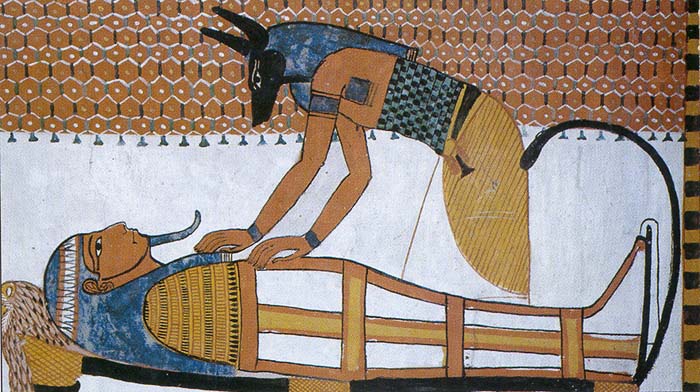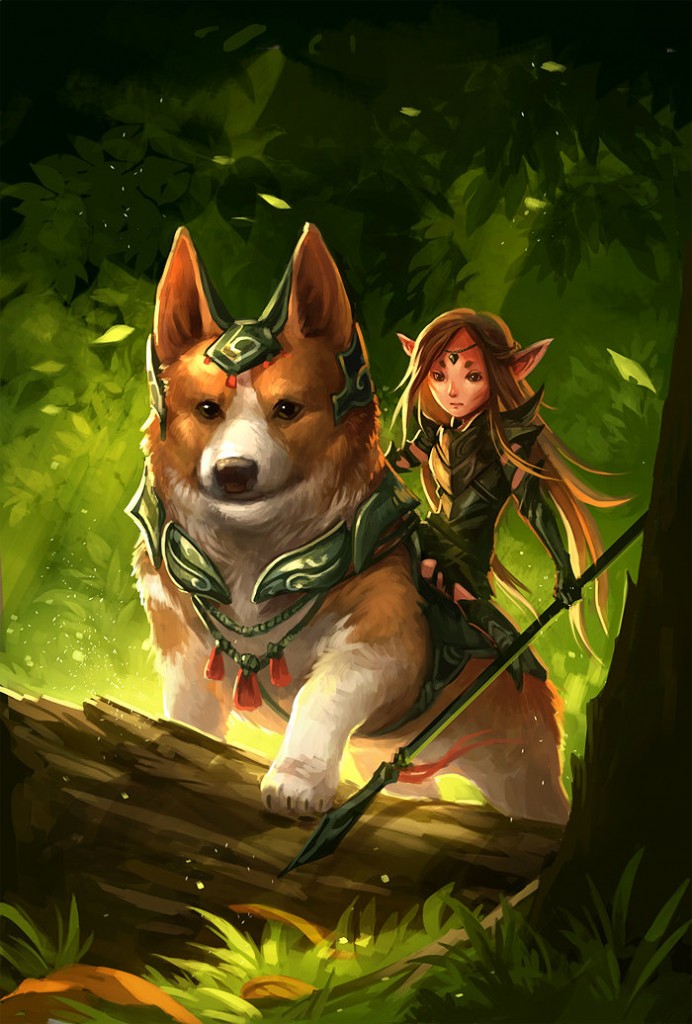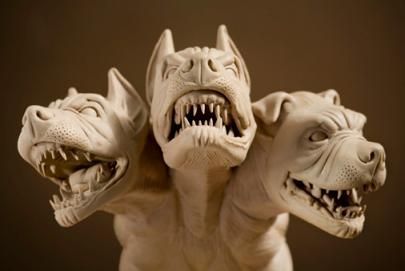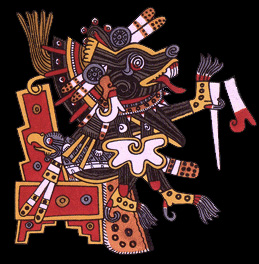For Christmas, my mom got me a copy of What the Dog Knows, by Cat Warren. It is about her journey with her dog, Solo, a cadaver dog. I just started it, and it is, so far, really good; I literally don’t want to put it down. The second chapter of the book, entitled “Death and the Dog” touches briefly on dogs and death rituals, dogs in mythology. I read it, and thought “I could read a whole book about this!”, but the chapter, alas, was only 13 pages.
I have long since been fascinated by death and death mythology; right out of high school I began a degree in Medieval Studies, mostly hoping to be able to spend all my time studying mythology and people long gone. For a while I thought I wanted to be a mortician for a living and, while I didn’t do that, I did discover the Order of the Good Death, which looks at death in a way that makes sense to me, rather than in the typical North American way (ie. fear and avoidance).
Obviously dogs have become my passion and my career, and mythology and death have become simple hobbies. Cat Warren’s book was an inspiration for me to marry the hobbies with the passion in this post.
Mythology and Superstition
Dogs are said to have supernatural vision; they can see faeries and sprites, and even Death himself, and bark to let you know they’re near. Witches were said to be able to transform into dogs, or send dogs to do their evil bidding. Welsh Corgis are said to be the steed to faeries, who ride them around like horses. Hellhounds are evil spirit dogs, and anyone who sees them will die.
A dog’s howl was said to predict death in many cultures; Egyptians, Hebrews, Irish, Romans, and Greeks all have ominous associations to a dog’s howl – especially at night. This could tie into the idea above that they could see Death. Dogs were also sometimes viewed as guides to the afterlife. Mayan remains have been found buried with dog remains, their dog a faithful guide to the end.
On the other hand, a stray dog following a person is said to be an omen of good luck, and a baby who is licked by a dog is said to be a fast healer for all their life.
Famous Dogs of Myth:
In history and mythology, dogs have long played a role. We see them a lot as gods or guides in the underworld.
Cerberus:
Perhaps the most well known dog of myth, Cerberus was known as the hound of Hades – Hades, of course, being the god of the underworld in Greek mythology. Cerberus is a huge three-headed dog who guards the gate to the underworld, letting the dead in and making sure they stay in.
Anubis:

Anubis is an ancient Egyptian god, with the body of a man but the head of a black dog – black for the colour of death. He was known to be an embalmer and mummifier, and also helped guide souls to the underworld. Furthermore, he was often present at the “Weighing of the Heart” ceremony, in which a heart of the deceased would be weighed against a feather, deciding their fate in the afterlife. He was also known to protect the dead.
Xolotl:
Xolotl is the Aztec dog myth. In a similar vein to previously mentioned myths, he guides the dead to the Aztec afterlife. He is also the god of lightening, and he is Venus in the night sky, a guiding light. He guides the sun through the underworld every night.
Cŵn Annwn:
The Cŵn Annwn are a Welsh myth. They are ghostly hounds, members of the Wild Hunt, known to predict catastrophe – death, war, plague. Sometimes they are also said to guide people to the underworld. If fact, one of the days they’re known to hunt is on the New Year – happy December 31, dear readers!
A Cŵn Annwn’s goal in the Wild Hunt is to hunt wrongdoers into the ground until they can run no longer, just as the criminals did to their victims. – Matthews, John; Matthews, Caitlín (2005). The Element Encyclopedia of Magical Creatures
Real Life Dogs and Death:
So do real life dogs understand death? Do they mourn?
Honestly, I don’t know. I’m not a scientist or a behaviourist. I try to avoid anthropomorphising dogs, I think it’s a dangerous habit to get into. It’s a nice thought though, isn’t it? That they mourn and feel loss deeply for us, as we do for them? Or is it kinder to wish them a blissful ignorance? There is certainly lots of anecdotal evidence of dogs mourning lost owners, but beyond that… I don’t know. It seems possible, I’ll say that much.
This is a super short overview, but if anyone feels up to writing a whole book on the subject – or pointing me to a good one, if there already is – I’d love to read it! Let me know in the comments if I’ve missed any cool myths, histories, or superstitions.



